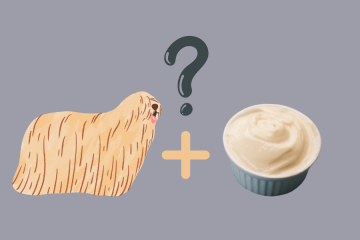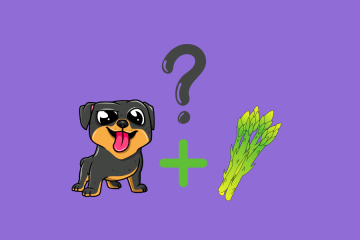4-month old puppies are incredibly playful and wildly energetic. They can play and keep running for an entire hour without stopping. But they are just like babies. After all the playing, they rest and sleep wherever they are.
If you aren’t sure how much sleep they should be getting, you could worry that they are oversleeping. So what are the right sleeping hours for a four months puppy? This article is here to answer all the questions and explain how other things relate to the puppy’s sleep pattern.
The Relationship Between Development And Sleep In Puppies
In most cases, a 4-month puppy has learned how to control its bladder. So by now, it can sleep for hours without needing a bathroom break, which increases its sleeping time, especially at night. In most cases, it will sleep through the night for around six to eight hours. For a 4-month old puppy, the world is still a new concept.
The smell, taste, and objects they come across are strange to them, and everything is a learning process. When the puppy sleeps, it takes that time to process all these new things. If your puppy doesn’t have enough sleep, it has no time to process all the information.
You might assume that your puppy is dumb, but the truth is it needs adequate rest. Additionally, the puppies’ muscles and bones develop and gain strength when sleeping. After spending a whole hour moving the muscles when playing, puppies use their sleep time to tone their muscles to achieve athletic body and strength. Sleep helps to improve the puppies’ immunity.
If your puppy doesn’t get enough sleep, then it will be fussy, cranky, destructive, and may end up catching an infection.
Choosing a Routine for Your Puppy
You may help your puppy adapt to the new environment and be able to catch more sleep by coming up with a routine. It’s also good to note puppies do well when accustomed to a pattern. It makes work easier for you as you can easily leave the puppy with someone else, and it won’t be hard to take care of it.
- The first thing you should do when it wakes up is to take it out to relieve itself.
- Give your puppy some breakfast, and because puppies need to relieve themselves after feeding, give him a bathroom break.
- Take him for a walk or give him some play toys. If you take him to socialize with other dogs, make sure it is fully immunized and have veterinary clearance.
- After playing, the next thing is taking a nap. The nap should last between 30minutes to 2hours. After he wakes up, take him out for the potty break.
- After that, it’s lunchtime and then a potty break.
- The afternoon schedule is a repeat of the process. Let him play, give him some toys or play with him. After playing, he’ll likely take another nap.
- After that, he will need a potty break. Feed him dinner and give him a potty break again. Take him for a walk after that.
- You can leave him to play with other members of the family. Clean him up and take it to its crate.
- You can use the treatment method where you reward him when he gets in. It’s possible to get overwhelmed with the routine as it has so much to do, and it seems like you have nothing else to do than take care of the puppy.
- The trick is being consistent. The first few days may be hard before it gets used to the routine. After that, you won’t even notice, and it will be easy for you too.
Developing Night Sleeping Habits
Puppies’ sleeping habits are different from other grown dogs because they are not yet developed. One reason is the puppy’s bladder is not fully developed, and they can’t hold the pee for a whole night.
The other reason is they are still learning about the new environment and other new things. For this reason, you may find the puppy waking up in the middle of the night. When they hit four months, they start to sleep through the night. You will begin to note your puppy doesn’t get up for a bathroom break or a snack at this point.
During the day, four-month-old puppies spend half of the time playing and the other half sleeping. It is best to train and teach new concepts as the brain is developing at this age, making it easy to understand and remember.
Make sure you train it after its nap as you are sure the puppy is not exhausted. In most cases, the puppy will play for one hour and then take a nap for around 30 minutes to 2 hours.
How to Help Your 4-Month Old Puppy Sleep More
The most important thing is that you don’t interrupt the sleeping schedule. Train your puppy and take it for walks during its playtime. Afterward, leave it to sleep. Ensure your schedule is synced to the puppy’s to avoid interrupting each other.
Avoid waking up the puppy when it’s sleeping. In most cases, puppies will sleep where they were playing, especially during the day. Ensure it’s comfortable and leave it to sleep without interrupting it.
Inform the other family members not to interrupt it and explain to them why he needs the sleep.
Ensure it’s sleeping space is safe and in the best sleeping condition. You can do this by making it a bed where you can use a crate and place some warm blankets in it. At night ensure the sleeping area is dim and there is no noise to sleep without disruptions.
Conclusion
Usually, 4-month old puppies sleep a lot. And sleep is essential to them as it helps them develop and understand the new world. It would help if you encouraged it to sleep more unless you suspect something is not okay with it. A healthy four-month-old puppy can sleep up to 20hours in a day, so relax and let the cute little puppy sleep.

Lydia King is a huge animal lover and has always been fascinated with learning about the animal kingdom. She enjoys writing about anything animal related from scientific information about rare species to animal references in pop culture.












